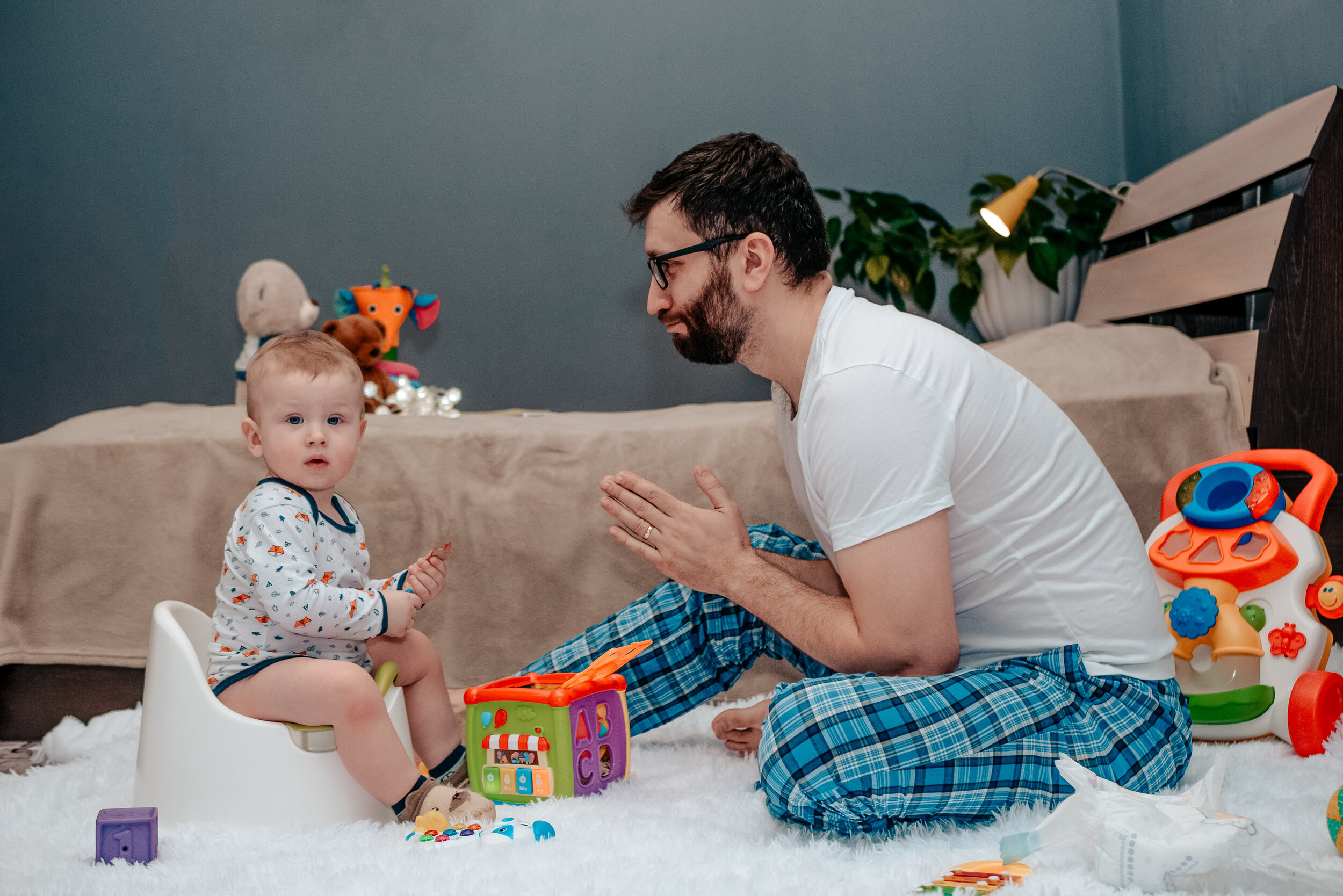My Child Won’t Poop! Part 1: Explanations
My Child Won’t Poop, Part 1: Explanations
Oh, how I wish I could just snap my fingers and give you the magic trick to potty train your stubborn or anxious child. Alas, I have found that poop, for being something natural that everybody does, can be extraordinarily complicated!
This is Part 1 of a four-part series on stubborn or difficult poopers. This first post will cover the most common explanations for poop training issues. The second will get into the most common solutions. The following week, we will cover the bases on how to handle extraordinary circumstances. Last, I’ll hop on a soapbox to discuss when it may be best to just take a big step back and try again later.
Before we can solve the problem, we need to identify the root of the pooping problem. The unique combinations of circumstances are infinite, but the following explanations account for most :
1) Generalized poop anxiety
Think about this from their perspective, and as silly as it is, try to be serious.
Poop. Feels. Weird.
Pooping is a really strange thing that we all do. Normal, sure. But it feels pretty odd. A banana-sized lump of bodily waste has to be deliberately pushed out of your anus roughly once a day.
Let that sit for a second and then let’s continue thinking about this from the 3 foot nothing perspective of your child.
You can feel it in your bowels, you can feel it leave your body. It feels weird. It just does. By late childhood, it becomes second nature to us, but it is still a big deal to your toddler.
Some kids, rightfully, think that poop is part of their insides coming out! From their tiny perspective, it isn’t hard to see why! You feel it from your guts to your butt and in spite of explaining that poop is pretty gross and it is best to just flush it away, they feel a certain ownership over it.
Now imagine that for your whole life (all two to three years!), the act of pooping has been done in the relative privacy of your diaper. It didn’t plop out into the open or into a porcelain bowl full of water. It was safely contained, right there next to your bottom, where someone else would come along and deal with it for you.
There’s honestly a lot to unpack here!
If they are quick to pee on the potty but are hesitant about pooping, be casual. Let them come to the bathroom with you to see that it is normal. Let them flush. Wave goodbye to the poop. Watch some Daniel Tiger potty episodes. Read Everybody Poops a few times over. The more exposure they get, the better your child will understand and want to imitate.
2) Pressure to perform
Have you asked your child if they need to poop a few dozen times today? Have you set a timer to go sit at intervals? Have you gotten frustrated when they hold it? Have they had accidents? Have you reminded them over and over but are still batting .00?
Okay. Now stop. Just stop.
Too many suggestions or timers quickly leads to “reminder resistance” and you aren’t really doing yourself any favors.
Lay off, be cool, and if you see your child scooting off to their favorite pooping spot or they start to do a potty dance, then suggest they head on over to the potty to poo.
3) Fear of pain
If your kiddo has ever experienced painful poops, the effects can linger longer than you expect. There isn’t really much you can do about this other than be patient. Let them poop in a pull-up if they need to- this is far preferable to becoming constipated from withholding.
Once the memory has faded a bit and their confidence in pooping comfortably has grown, try again to ditch the diaper and reintroduce the potty for poo.
4) Constipation and its effects
First of all, if you believe your child may be constipated, consult with their pediatrician for advice. They may recommend diet changes or even temporarily suggest medicating for relief.
If your child is or has been chronically constipated, potty training can really be an uphill battle. Understand that the fear of pain, like mentioned above, is very real. Do you remember your first couple of poops after delivering a baby? Yeah. Your kid also remembers when pooping hurt a lot. So, give them a break.
With the help of their doctor, make sure that they have relief of constipation. If it returns, you may as well be back to square one. Be proactive about avoiding painful stool.
Hopefully once they are confident that pooping won’t hurt, they’ll be ready to give the potty a good try.
In very rare cases, regular constipation can lead to genuine accidents that are not just the product of laziness or stubbornness. A small percentage of constipated children will lose some nerve sensitivity in their rectum, making it difficult to impossible to recognize the need to poop or to control bowel movements.
If you think there is a possibility that your child’s failure to poop on the potty may be the result of long-term constipation, ask them about next steps.
Stick around for the weeks to come, because I am going to dive deep into the world of poop and surely this is an adventure you can’t wait to go on with me! If you have questions for the upcoming weeks, feel free to use the comment section below! I would love to hear what’s happening for your family and make sure that your questions are answered!




